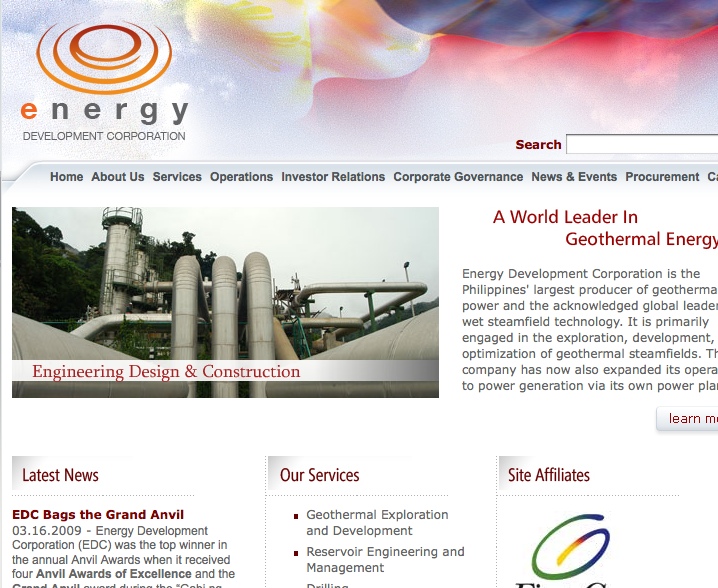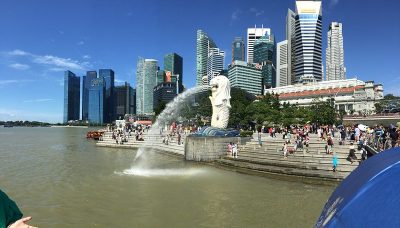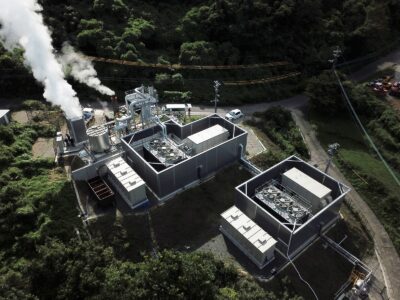FirstGen/ EDC eyeing expansion in Chile and Indonesia within next 5 years
Energy Development Corp. (EDC) and mother company First Gen still plan on expanding internationally within the next five years, particularly focused on Indonesia and Chile.
Reported before here on ThinkGeoEnergy, the geothermal power house from the Philippines, Energy Development Corp. (EDC) and its mother company First Gen Corp. are still very “upbeat about overseas expansion, particularly in Indonesia and Chile, within the next five years using the geothermal power-generation expertise of affiliate Energy Development Corp. (EDC).
First Gen president Francis Giles Puno said in a recent interview that both First Gen and EDC would be expected to deliver better results in 2012 after completing this year the impairment charge for its Northern Negros geothermal power plant.
“Next year should be better because we’ll have the full contribution of the Bacman [Bacon-Manito geothermal plant] and also in the case of First Gen, our ownership in EDC has gone up to more than 46 percent from 40 percent, so presumably the timing is good if they deliver better results,” said Puno, who also sits as a director at EDC.
Due mainly to a P5-billion “impairment charge” resulting from the decommissioning of the Northern Negros facility, both First Gen and EDC reported huge net losses in the first semester. The shutdown of the 49-megawatt Northern Negros plant was necessary to curb losses arising from its continued operations.
On the other hand, the rehabilitation of the Bacman plant is seen bringing additional capacity to the group by 2012. He added that Palinpinon-Tongonan, while currently operating, would have to be rehabilitated next year.
The group is likewise waiting for the feed-in-tariff regime to be approved as it also plans to grow further its renewable energy portfolio such as wind and hydro-electric power plants. “Once the feed in tariff is approved, then we can proceed. Then I think what we’ll see is that more plants will be established as needed,” Puno said.
While the immediate focus is on the Philippines, Puno said the group has mapped out a plan to embark on offshore projects in Indonesia and China within a five-year time horizon. He noted that these were the countries in the same Pacific “Ring of Fire” that could harness geothermal resources to produce energy.
In the case of Indonesia, most of the geothermal power-generation concessions have already been awarded or in the hands of the government. He said EDC was talking to the holders of those concessions as well as with the government, offering its assistance in the building of geothermal power plants.
“We realize the potential is very big; however, we have to be a bit selective in investments,” Puno said.
Being the second-largest geothermal power producer in the world—and the biggest operator of integrated facilities—EDC seeks to bring its expertise in the business to the overseas market. The Philippines first developed geothermal power plants in the 1970s to cover the energy shortfall at that time.
“In the case of Chile, they were able to import fuel from neighboring countries like Argentina but now that these countries need their own power, Chile is forced to develop its alternative sources,” Puno said.”
Source: Business Inquirer


















